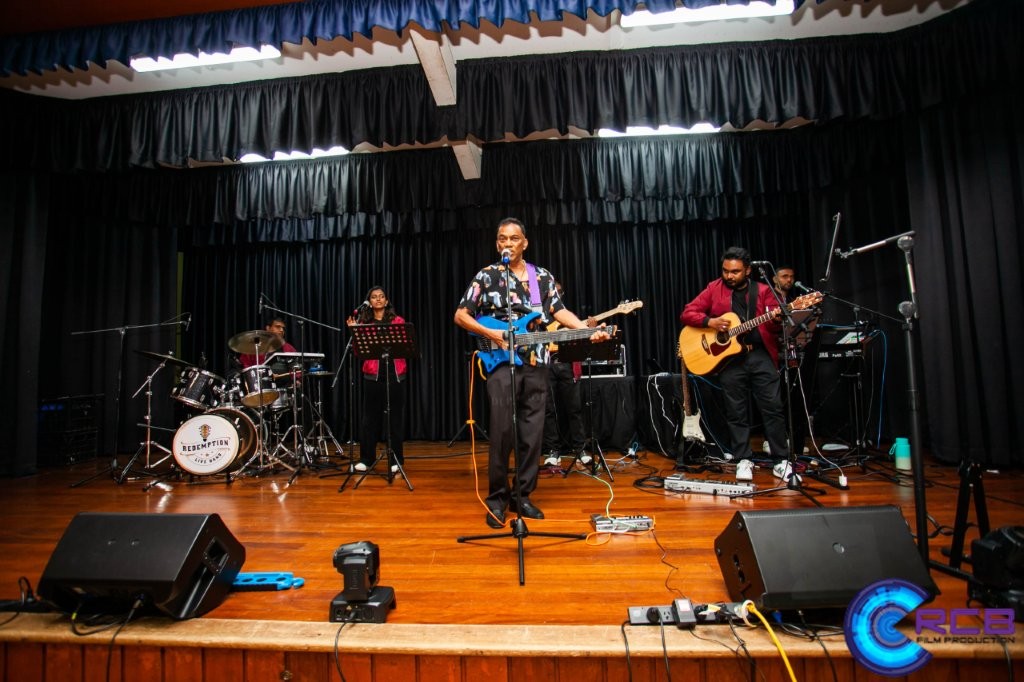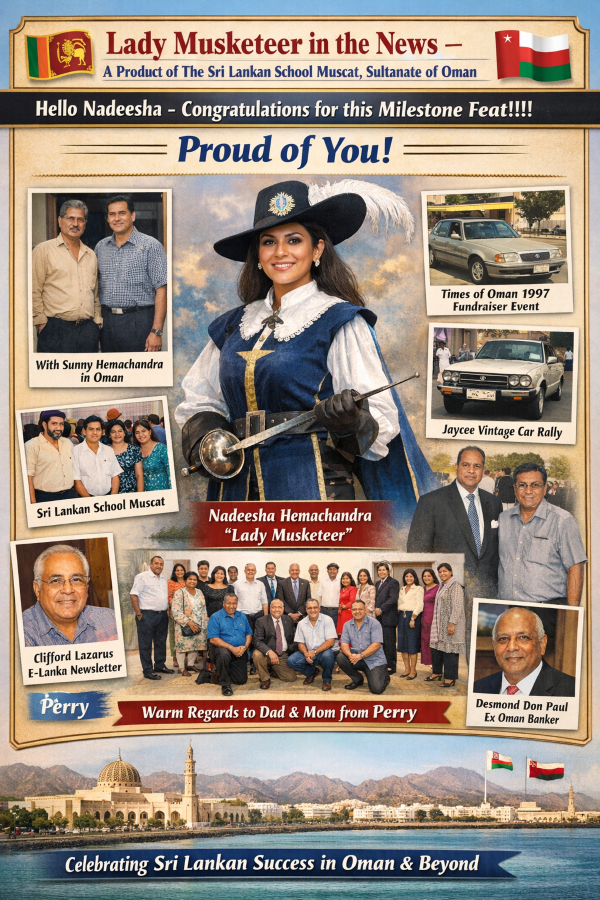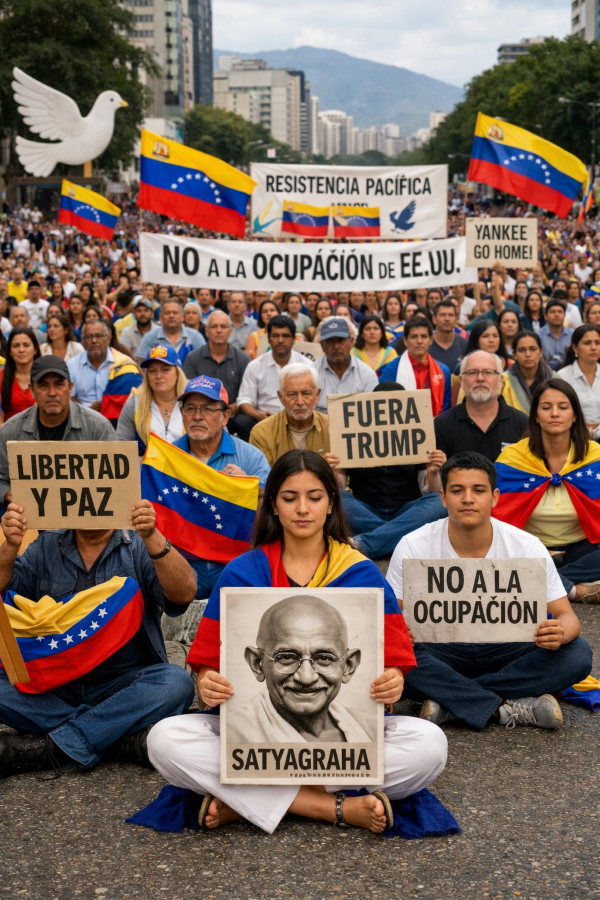World Cities Day falls tomorrow Act Local to Go Global – By PRAMOD DE SILVA
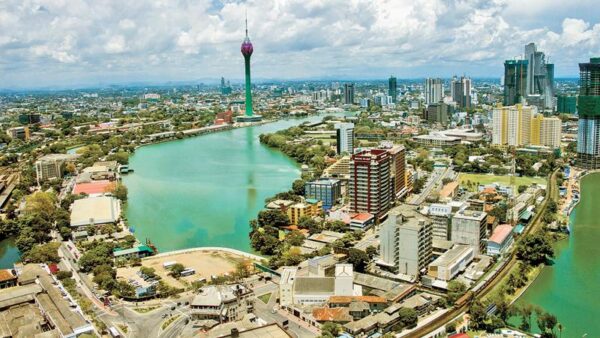
Source : sundayobserver
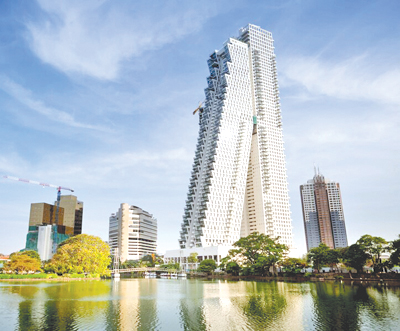 Tomorrow, we celebrate the cities of the world. World Cities Day brings Urban October to an end on October 31 each year and was first celebrated in 2014. As with World Habitat Day, a global observance is held in a different city each year and the day focuses on a specific theme.
Tomorrow, we celebrate the cities of the world. World Cities Day brings Urban October to an end on October 31 each year and was first celebrated in 2014. As with World Habitat Day, a global observance is held in a different city each year and the day focuses on a specific theme.
This year’s global observance is planned in Shanghai, China under the theme “Act Local to Go Global.” The United Nations wants to bring different partners and diverse stakeholders together to share their experiences and approaches to local action, what local action worked and what is needed to empower local and regional governments to create greener, more equitable and sustainable cities.
Global urbanisation
The Day is expected to greatly promote the international community’s interest in global urbanisation, push forward cooperation among countries in meeting opportunities addressing challenges of urbanisation and contributing to sustainable urban development around the world.
Urbanisation provides the potential for new forms of social inclusion, including greater equality, access to services and new opportunities, and engagement and mobilisation that reflects the diversity of cities, countries and the globe. Yet too often this is not the shape of urban development. Inequality and exclusion abound, often at rates greater than the national average, at the expense of sustainable development that delivers for all.
Urban October was launched by UN-Habitat in 2014 to emphasize the world’s urban challenges and engage the international community towards the New Urban Agenda.
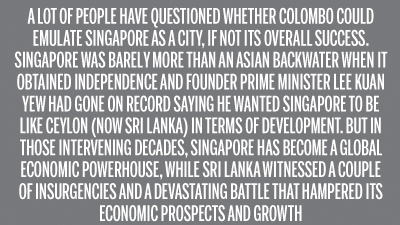 Sustainable Development Goal 11, formulates the ambition to make cities and human settlements inclusive, safe, resilient and sustainable – underlying the relevance of UN-Habitat’s mission. Inequalities in cities have grown since 1980. The world’s largest cities are also often the most unequal, and this year’s theme is embraced by the action and implementation of the New Urban Agenda, which is putting the topic of inclusive cities as one of the main pillars for the urban shift.
Sustainable Development Goal 11, formulates the ambition to make cities and human settlements inclusive, safe, resilient and sustainable – underlying the relevance of UN-Habitat’s mission. Inequalities in cities have grown since 1980. The world’s largest cities are also often the most unequal, and this year’s theme is embraced by the action and implementation of the New Urban Agenda, which is putting the topic of inclusive cities as one of the main pillars for the urban shift.
In October 2016, the Habitat III Conference, held in Quito, adopted a new framework, which will set the world on a course towards sustainable urban development by rethinking how cities are planned, managed and inhabited. The New Urban Agenda will set the pace on how to deal with the challenges of urbanisation in the next two decades, and is seen as an extension of the 2030 Agenda for Sustainable Development, agreed on by the 193 Member States of the UN in September 2015.
Challenges
Cities face many challenges which they cannot face alone. This is why cities must cooperate with each other by linking up as Twin Cities and through other collaborative acts. Hence the theme “Act Local to Go Global”. Most Mayors know each other in a professional and personal capacity, which helps to form strong bonds between cities that could sometimes be on opposite ends of the Earth. There are many lessons that Colombo and Kandy, for instance, can draw from similar cities in other countries.
However, there are a few problems that are common to all cities. Traffic congestion is one of the main problems faced by nearly all cities the world over. While Colombo’s traffic congestion is not as bad as that of Jakarta or Manila, it can be a nightmare to navigate Colombo’s streets sometimes. However, the fuel crisis and the import ban on new vehicles has somewhat reduced the numbers of vehicles on our roads. But there needs to be a comprehensive plan to improve the public transport facilities in Colombo and all other cities. The decision to cancel the Light Rail Transit first phase from Malabe to Colombo Fort was horrendously foolish, because it would have reduced the travel time to just 25 minutes (as opposed to one hour or more by car or bus) and also taken off at least 500 private cars off the road during morning and evening rush hours.
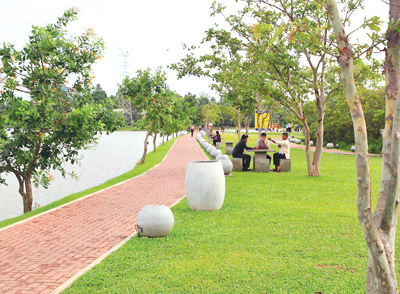
We also need to electrify the urban railways and the bus fleet, to reduce our dependence on fossil fuel. Talking of cooperation, our authorities should examine the success of Bus Rapid Transit (BRT) systems already deployed in India and many other countries, whereby buses can use special lanes even against the traffic. This could be an alternative to much more expensive underground rail systems. Many important bus routes in Colombo (102, 104, 112, 115, 131, 169, 173, 155 and 198 are just a few examples) and elsewhere have vanished, adding to the commuters’ misery. This topic deserves a separate article, though.
Housing
Housing is another major problem in the cities, especially Colombo with its sprawling “wattas” or tenement gardens comprising slums. With the Kajeemawatte fire, we recently witnessed the devastating effects of having so many shanty dwellings close together. While high rise apartment complexes have come up in some areas to give these residents better housing facilities, many of them are unfortunately used to the tenement lifestyle, with undertones of crime, prostitution, drugs and other vices. We must look at how other cities around the world have addressed this problem, as part of acting globally on this score.
Cities are also feeling the effects of Climate Change, with spells of drought and floods disturbing the daily lives of the residents. Many parts of Colombo and other cities around the island experienced mini-floods during the recent downpour. The City recently got an improved storm water drainage system, but it appears that there are some lacunae in its coverage. The Colombo Municipal Council (CMC) must draw its attention to such shortcomings. Colombo and other cities also need more “Green Lungs” or garden areas to generate a good atmosphere (literally) and for people to relax.
A lot of people have questioned whether Colombo could emulate Singapore as a city, if not its overall success. Singapore was barely more than an Asian backwater when it obtained Independence and founder Prime Minister Lee Kuan Yew had gone on record saying he wanted Singapore to be like Ceylon (now Sri Lanka) in terms of development. But in those intervening decades, Singapore has become a global economic powerhouse, while Sri Lanka witnessed a couple of insurgencies and a devastating battle that hampered its economic prospects and growth. Now that the battle is no more and peace has returned, Sri Lanka could potentially become another Singapore, given its strategic location, investment opportunities, skilled workforce and adequate infrastructure facilities.
Singapore, the best example
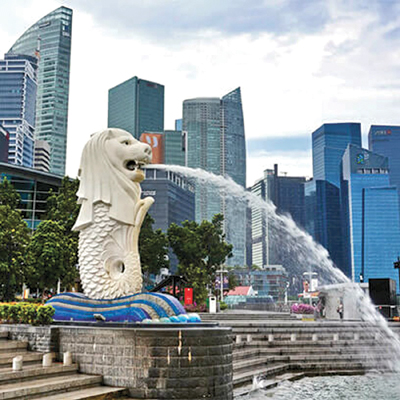
Actually, we do not have to look much further than Singapore for inspiration. It now has a world-class public transport system with a Metro Rapid Transit train system, a very good bus network and a fleet of proper car-based taxis that are all coordinated. In fact, The Land Transport Authority (LTA) of Singapore expects the number of daily public-transport trips to hit 11 million by 2023. Singapore does have various restrictions on car ownership due to extremely limited space (which may not necessarily apply to Sri Lanka which around 100 times bigger though car imports have not taken place here for the last three years due to the economic crisis), but there are other measures such as encouraging carpooling which may work well here.
The entry of app-based ride hailing services to Sri Lanka is a good omen because it will encourage lone drivers to take a few other passengers along for a fee. Moreover, if the three wheelers in at least the Colombo City limits are taken out of circulation, the traffic flow will be much better (three wheelers cause the most number of accidents) and in the alternative, we should have a proper car-based taxi service. In any case, we have more three wheelers than we need (around 1.2 million) and their imports should be curbed. However, an exception can be made for factory-built electric three wheelers and three wheeler owners should be encouraged to retrofit their contraptions with electric motors. Duty concessions can be provided for this initiative.
Bigger focus needed
There should be a bigger focus on energy generation for at least the Western Province, which consumes much of the country’s power output at present. Renewable energy (primarily solar and wind) is the wave of the future and the authorities should encourage more such projects, including solar net metering systems for households. Colombo should get more DC electric car superchargers as it is likely that only electric cars will be imported henceforth to ward off our dependence on fossil fuels.
Cities are also hotbeds for disease transmission, which we learned much to our consternation during the Covid crisis. Dengue is rampant in Colombo and many other cities because there are plenty of uncleared waterways, drains and other spots for mosquitoes to breed. The authorities should address this problem without delay. The cities often have the best hospitals, but it is far better to stop diseases at the source.
Transport, habitats and energy – all these are ultimately for the benefit of the city dwellers, who should rightly be at the heart of any urban renewal effort. It is thus essential to seek the maximum public participation in making our cities more habitable, more inspiring and more beautiful.

















